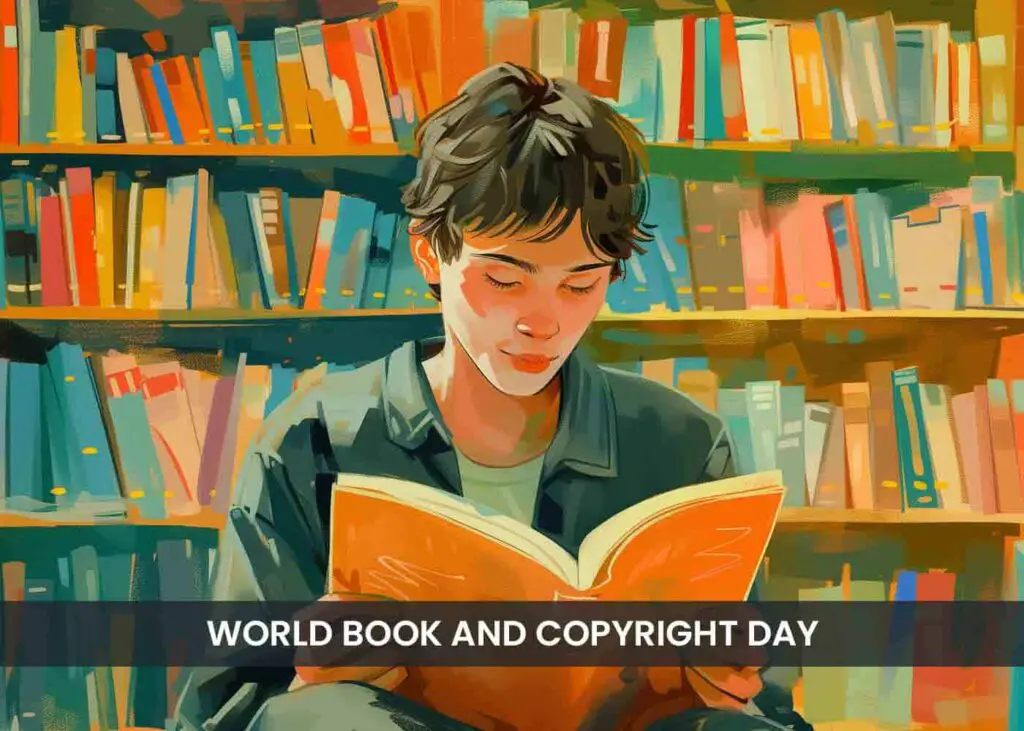
World Book and Copyright Day: Celebrating Literature and Legal Rights
World Book and Copyright Day is a celebration that takes place annually on April 23rd to honor books and reading. This date was chosen by UNESCO to pay tribute to the world of literature and its significant impact on culture and society. It marks an occasion to reflect on the role of books as instruments of education, communication, and cultural development. Across the globe, this observance emphasizes the joy and benefits of reading, recognizing books as vehicles for fostering imagination and growth among readers of all ages.
On this day, special attention is given to the authors who have enriched the world with their stories and ideas. It serves as a moment to acknowledge the tireless work of teachers and educators in promoting the love for reading among children and students. World Book and Copyright Day encourages communities to come together to share the pleasure of reading and to inspire a new generation of young people to discover the wealth of experiences that literature offers.
Celebrations of the day emphasize the importance of preserving intellectual property through copyright law, ensuring that creators are fairly compensated for their work. This global observance also highlights the value of diverse languages and cultures in literature, promoting a universal sense of community. Events on April 23 drive home the message that books are more than just educational tools; they are treasures that nurture the intellect and stir emotions, fostering a lifelong engagement with the written word.
1. Global Impact and Celebration of World Book and Copyright Day
The commemoration of World Book and Copyright Day has a significant impact on global cultural exchange and the promotion of reading. Celebrations take place worldwide, acknowledging the importance of books and reading in the fostering of education, culture, and the sharing of ideas.
UNESCO and World Book Day
UNESCO spearheads World Book Day, highlighting the power of books in fostering peace, sustainability, and bridging the knowledge gap. They collaborate with international partners to organize events and campaigns, driving the message that books are a keystone of informed and engaged societies.
Key Activities:
- Promoting literary works across cultures.
- Engaging with authors, publishers, and the book industry.
- Encouraging translations and accessibility of literary works globally.
World Book Capital and Local Events
Each year, UNESCO designates a city as the “World Book Capital,” prompting local initiatives to celebrate books and reading. From Catalonia, Spain to Accra, Ghana, the chosen cities host an array of activities including book fairs, author signings, and workshops.
Community Engagement:
- Partnerships with civil society organizations.
- Linking book industry and library services to foster a community of readers.
Engagement and Educational Role
World Book Day mobilizes educators, librarians, and youth, underscoring the educational importance of books for children and schools. Press and media coverage amplify the festivities, from engaging children in storytelling sessions to igniting discussions among youth on cultural topics.
Educational Initiatives:
- School-based reading programs.
- Author visits and interactive library events.
Cultural Significance:
- Recognizing local authors and cultural narratives.
- International cooperation in literary and educational projects.
2. Copyright, Creativity, and Challenges
Copyright serves as the cornerstone of protecting intellectual property, whilst also fostering creativity and navigating contemporary obstacles. This section explores the intricacies of how laws shield authors and publishers, the promotion of creativity alongside access to materials, and the adaptation to modern challenges.
Protecting Intellectual Property
Copyright is a legal mechanism that grants authors and publishers exclusive rights to their work. It is designed to protect intellectual property, ensuring that creators receive recognition and financial benefits.
- International Copyright Laws: Varied across countries but based on common principles.
- Berne Convention: Ensures protection across signatory countries.
Promoting Creativity and Access
Copyright laws also aim to enhance creativity and access to books and other materials. They balance the interests of creators and the public, facilitating cultural enrichment and knowledge sharing. For instance, adaptations of Shakespeare’s plays for radio and television have made them accessible to a wider audience.
- Access to Creative Works: Enabled through various formats.
- Digital: E-books, online articles
- Traditional: Libraries, bookstores
Adapting to Modern Challenges
The evolution of modern technologies and unexpected events like the COVID-19 pandemic have posed significant challenges to the realm of copyright. Confinement led to a surge in the use of digital games and online publications. Publishing industries have grappled with providing access to books while ensuring that intellectual copyright is respected.
- Innovations and Adaptations: Responding to changing consumption patterns.
- E-books: Surge in popularity
- Online Reading Platforms: Increased use during confinement
- Legal Responses: Updating copyright laws to stay relevant.
- Digital Rights Management: Protecting digital content
- Fair Use Provisions: Balancing rights with access needs




